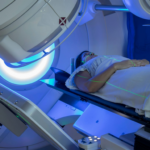
Introduction
Cancer is a complex and diverse group of diseases, and treating it often involves a multidisciplinary approach. Within the field of oncology, there are various specialized physicians, known as oncologists, who play different roles in the diagnosis, treatment, and management of cancer. In this article, we’ll delve into the world of oncology and explore the different types of oncologists and their unique areas of expertise.
Medical Oncologists
Medical oncologists are often the primary physicians overseeing cancer treatment. They specialize in the use of systemic treatments, such as chemotherapy, targeted therapy, and immunotherapy. Their responsibilities include:
- Treatment Planning: Medical oncologists develop personalized treatment plans for patients based on the type and stage of cancer.
- Medication Management: They prescribe and manage medications, monitor side effects, and make adjustments as needed.
- Coordination of Care: Medical oncologists collaborate with other specialists, such as surgeons and radiation oncologists, to ensure comprehensive cancer care.
Surgical Oncologists
Surgical oncologists are experts in performing surgical procedures to remove tumors and cancerous tissues. Their roles include:
- Surgical Resection: Surgical oncologists perform procedures to remove cancerous growths, either curatively or palliatively.
- Biopsies: They may conduct biopsies to diagnose and stage cancer and determine its extent.
- Preoperative and Postoperative Care: These specialists manage the care of patients before and after surgery, ensuring a smooth recovery process.
Radiation Oncologists
Radiation oncologists use high-energy radiation to treat cancer by damaging the DNA of cancer cells, preventing their growth. Their responsibilities include:
- Treatment Planning: Radiation oncologists create customized radiation therapy plans to target the tumor while sparing healthy tissues.
- Radiation Delivery: They oversee the delivery of radiation therapy, ensuring precise treatment.
- Monitoring and Follow-Up: Radiation oncologists monitor patients during treatment and follow up after radiation therapy to assess its effectiveness.
Pediatric Oncologists
Pediatric oncologists specialize in the treatment of cancer in children and adolescents. They possess unique expertise in managing childhood cancers and addressing the specific needs of young patients. Their roles include:
- Diagnosis and Treatment: Pediatric oncologists diagnose and treat various childhood cancers, including leukemia, neuroblastoma, and Wilms tumor.
- Emotional Support: They provide emotional support to young patients and their families, recognizing the unique challenges they face.
- Collaborative Care: Pediatric oncologists collaborate with other pediatric specialists to provide comprehensive care.
Hematologic Oncologists
Hematologic oncologists focus on the diagnosis and treatment of blood-related cancers, such as leukemia, lymphoma, and myeloma. Their responsibilities include:
- Blood Disorder Expertise: Hematologic oncologists are skilled in diagnosing and managing blood cancers and blood-related conditions.
- Stem Cell Transplantation: They often oversee stem cell transplant procedures, a common treatment for certain blood cancers.
- Chemotherapy and Immunotherapy: Hematologic oncologists use a range of treatments, including chemotherapy and immunotherapy, to manage blood cancers.
Gynecologic Oncologists
Gynecologic oncologists specialize in the diagnosis and treatment of cancers that affect the female reproductive system, such as ovarian, uterine, and cervical cancers. Their roles include:
- Surgery: Gynecologic oncologists perform complex surgical procedures, including radical surgeries, to remove cancerous tissues.
- Chemotherapy and Radiation: They also provide adjuvant therapies, such as chemotherapy and radiation, as part of comprehensive treatment plans.
- Screening and Prevention: Gynecologic oncologists may counsel patients on cancer risk reduction and preventive measures.
Genitourinary Oncologists
Genitourinary oncologists specialize in the treatment of cancers that affect the urinary and reproductive systems, including prostate, bladder, and kidney cancers. Their responsibilities include:
- Diagnosis and Staging: They diagnose these cancers and determine their stage and extent.
- Treatment Planning: Genitourinary oncologists develop personalized treatment plans, which may involve surgery, chemotherapy, or radiation therapy.
- Surveillance and Follow-Up: They monitor patients during and after treatment to assess their progress and manage any potential side effects.
Conclusion
The field of oncology is highly specialized, with various types of oncologists focusing on different aspects of cancer care. These specialists collaborate to provide patients with comprehensive and personalized treatment. As the landscape of cancer treatment continues to evolve with advances in research and technology, oncologists play a crucial role in improving outcomes and quality of life for individuals facing the challenges of a cancer diagnosis.
The field of oncology thrives on specialization, with each type of oncologist contributing uniquely to cancer care. Collaboration among these specialists ensures comprehensive and personalized treatment for patients. As cancer treatment advances with research and technology, oncologists, such as Dr. Jagdish Shinde, contribute significantly to improving outcomes and enhancing the quality of life for those facing a cancer diagnosis. For more information, you can visit Dr. Jagdish Shinde’s Cancer Care Pune.




